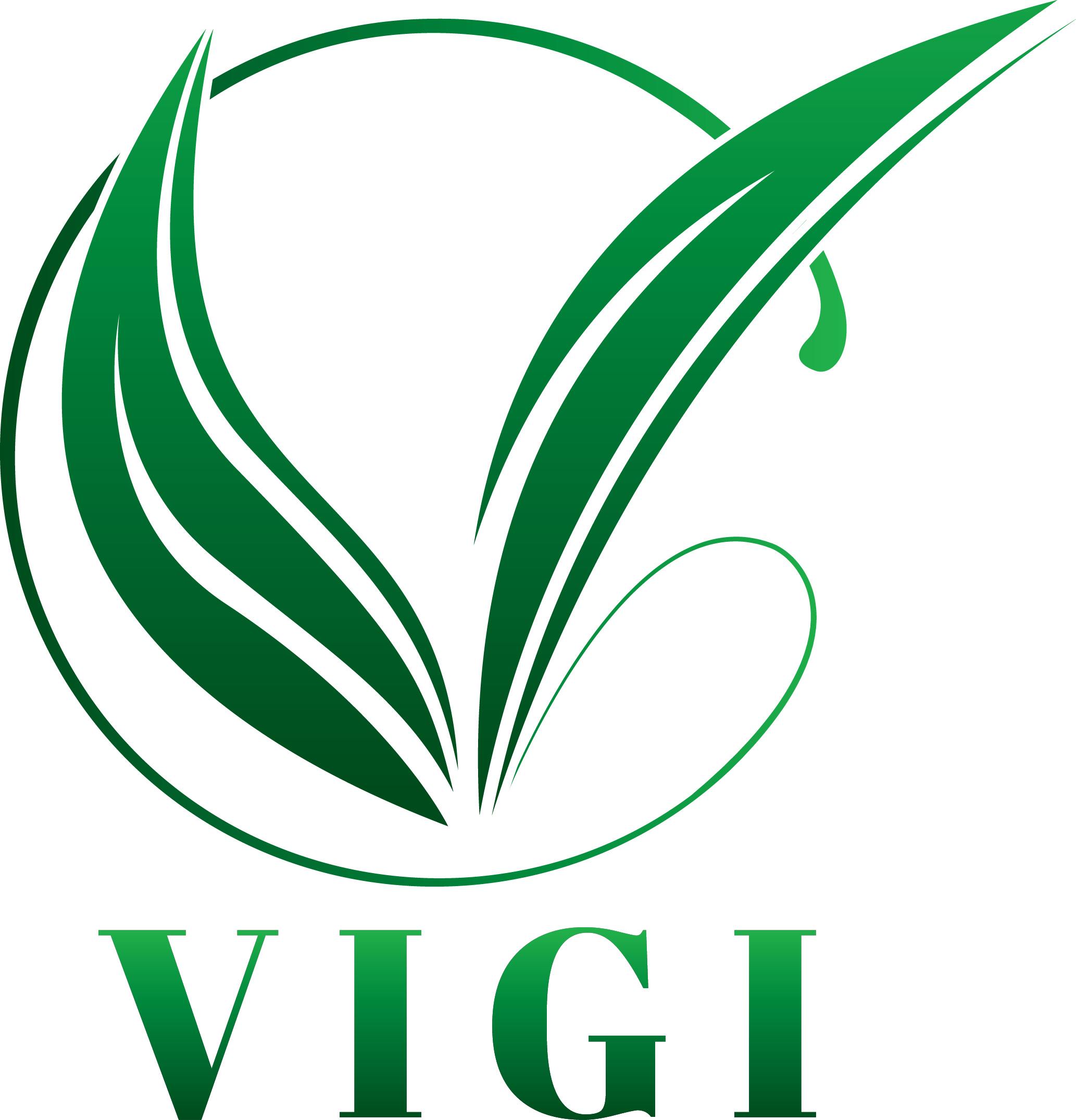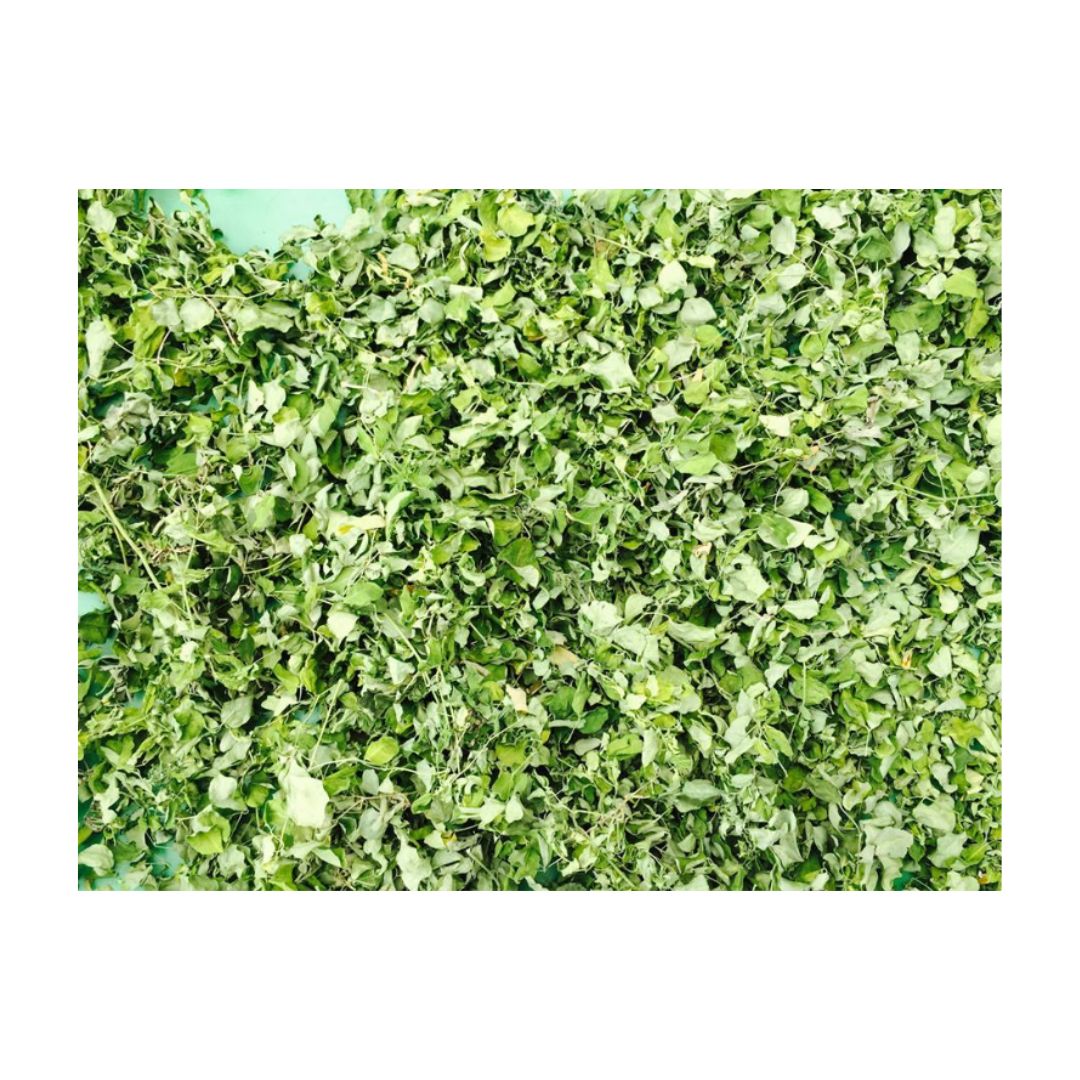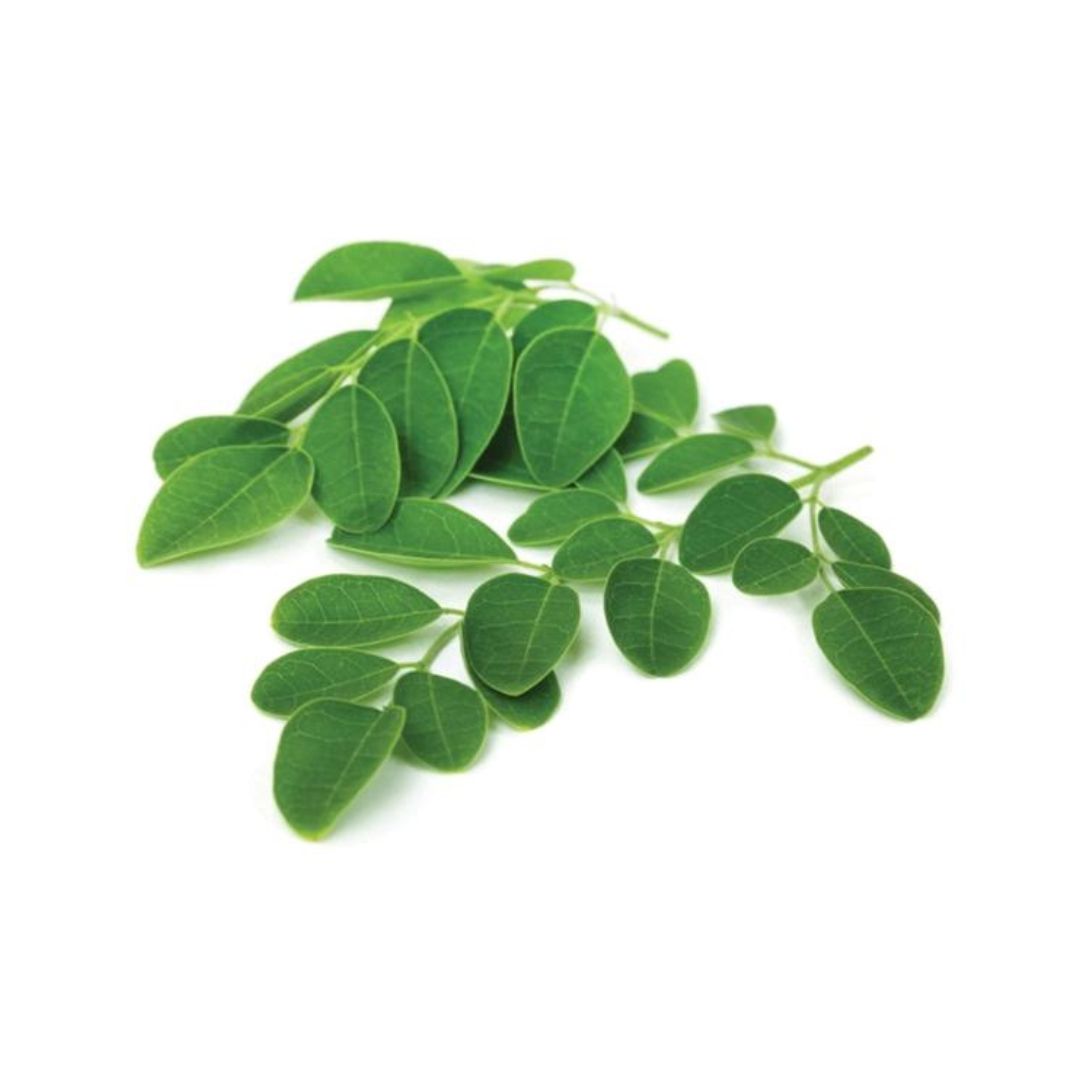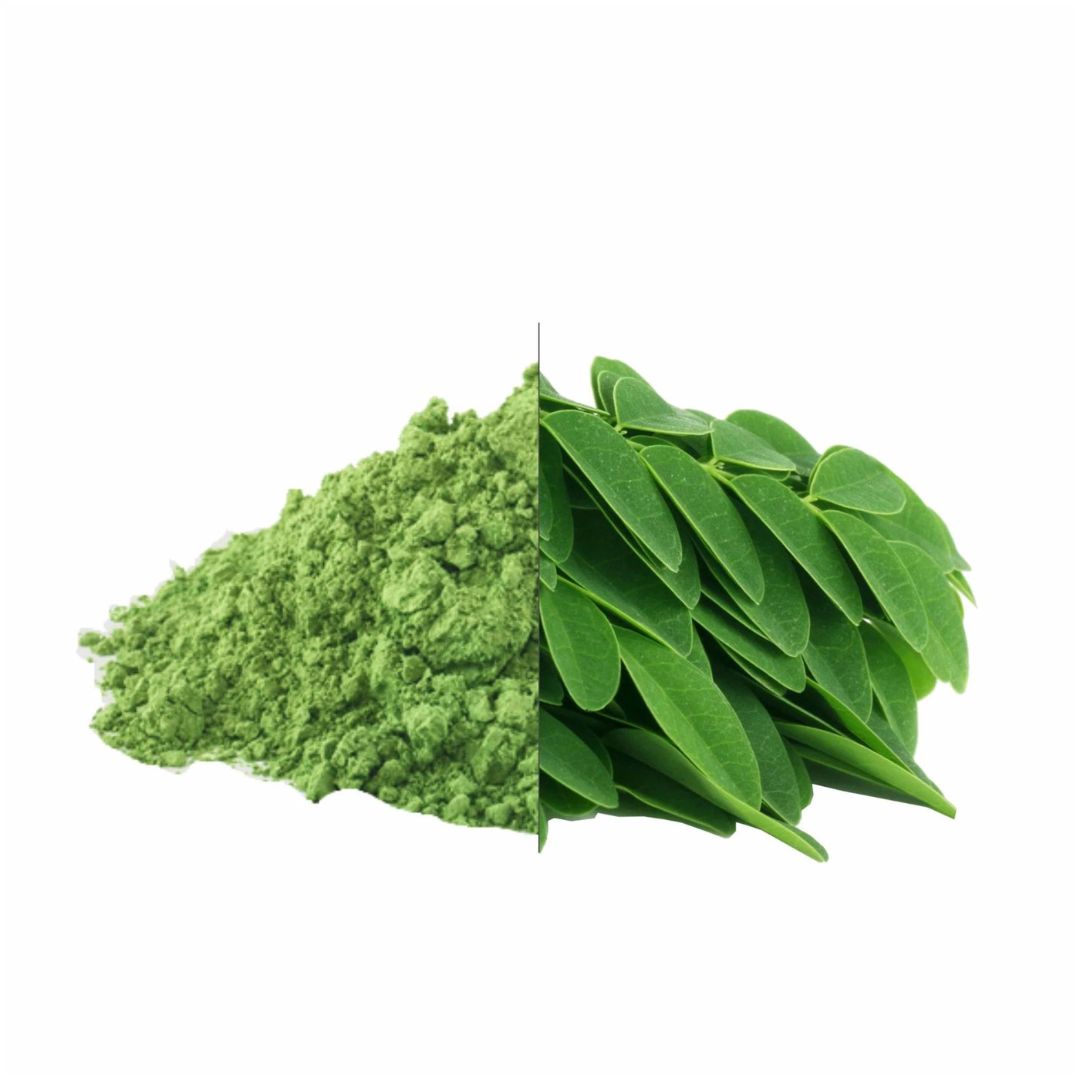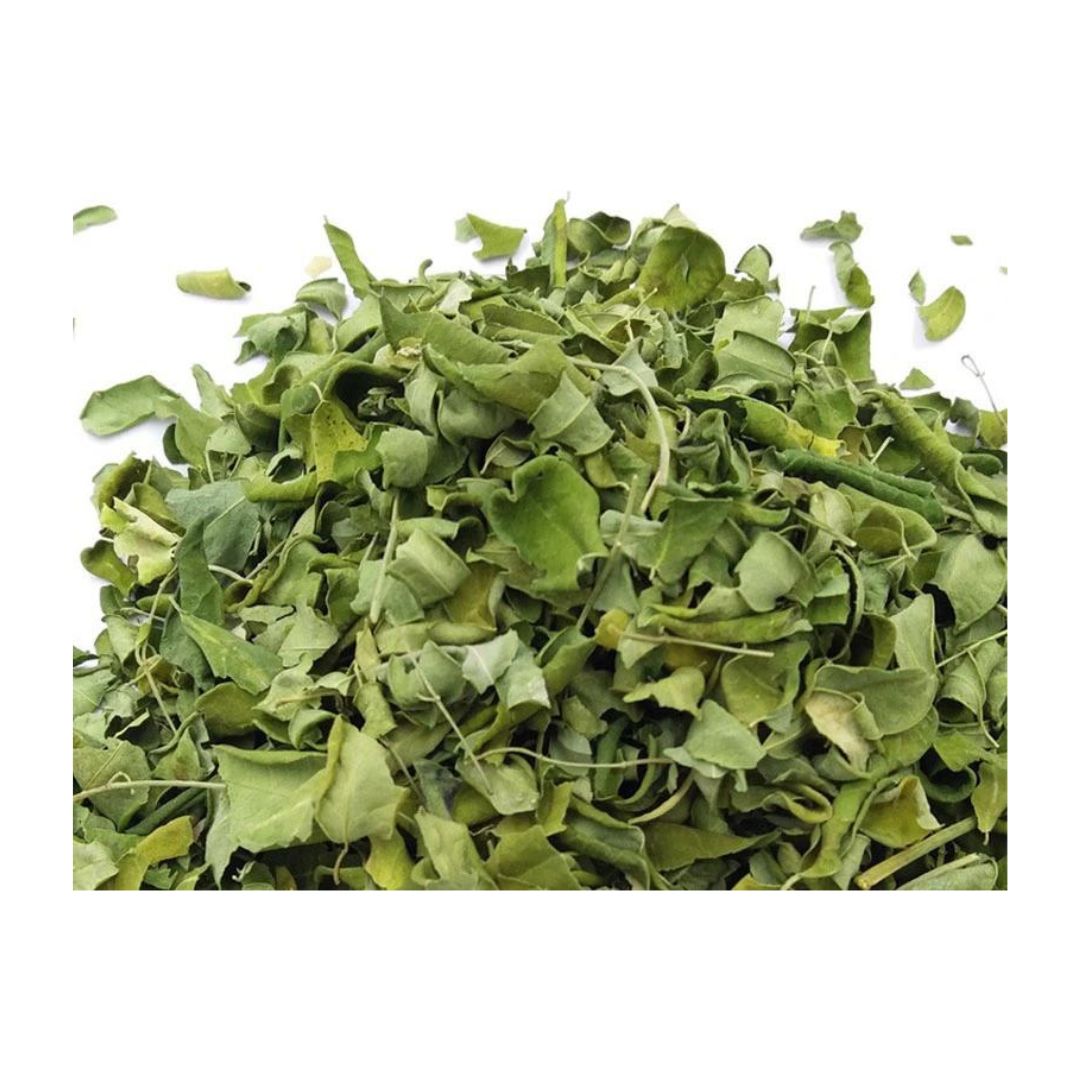-
Nutrient-Rich: Moringa leaves are a rich source of essential nutrients, including vitamins, minerals, and antioxidants. They contain significant amounts of vitamin C, vitamin A, calcium, potassium, iron, and protein.
-
Edible Uses: The leaves are commonly used as a vegetable in cooking, and they have a mild, slightly peppery flavor. They can be added to various dishes such as soups, stews, salads, and curries.
-
Medicinal Uses: Moringa leaves have been traditionally used in herbal medicine for their potential health benefits. They are believed to have anti-inflammatory, antioxidant, and antimicrobial properties. Moringa leaves and extracts are used in various traditional medicine systems to treat a range of ailments.
-
Nutritional Supplement: Moringa leaves can be dried and ground into a powder, commonly known as moringa leaf powder. This powder is often used as a nutritional supplement and can be added to smoothies, juices, or sprinkled on food.
-
Moringa Tea: Moringa leaves are used to make moringa tea, a popular beverage that is consumed for its potential health benefits. The leaves are steeped in hot water to make a nutrient-rich tea.
-
Sustainable Crop: Moringa is known for its fast growth, adaptability to various climates, and resilience. The tree is considered a sustainable crop, and its leaves provide a valuable source of nutrition, especially in areas where food resources may be limited.
-
Potential Health Benefits: Research on moringa leaves suggests potential health benefits, including their ability to lower blood sugar levels, reduce inflammation, and lower cholesterol. However, more research is needed to fully understand and validate these health benefits.
